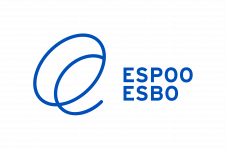eCargo
Reducing truck emissions by developing EV charging network
(Photo: Vesa Laitinen, Forum Virium Helsinki)
Reducing truck emissions by developing EV charging network
(Photo: Vesa Laitinen, Forum Virium Helsinki)
The eCargo project lays the groundwork for a public charging network for electric trucks and larger vans in the Helsinki metropolitan area. Thereby it positively impacts, particularly in the long term, emissions reduction, energy savings, and other climate goals of the region. It also boosts the business operations of companies in the sector.
Transportation is a significant contributor to greenhouse gas emissions in Finland. Heavy traffic accounts for a significant portion of transportation emissions, and thus, electrifying heavy traffic has significant potential to reduce carbon dioxide emissions. The Helsinki metropolitan area is Finland's most important unified economic area and concentration of freight traffic. With crossregion traffic, emissions from heavy traffic pose a common challenge for the whole area.
The share of transportation emissions in the Helsinki metropolitan area's greenhouse gas emissions is approximately 27%. Heavy trucks and vans together account for 33% of these emissions. Transportation is a very significant source of carbon dioxide emissions in the climate efforts of all European cities. Therefore, the solutions and operating models developed in the Helsinki metropolitan area are in high demand both nationally and internationally.
Because the electrification of heavy trucks has been very slow, according to calculations, the share of emissions from truck traffic will keep increasing. Indeed, reducing emissions from truck traffic is crucial for achieving urban carbon neutrality goals.
Small and medium-sized logistics companies often do not have the opportunity to invest in their own charging points. However, there is a clear shortage of publicly available charging infrastructure serving vehicles larger than passenger cars in cities.
Azat Kuitunen
Project Manager
Clean and Sustainable Solutions Innovation Hub
Email: Azat.Kuitunen [at] metropolia.fi (Azat[dot]Kuitunen[at]metropolia[dot]fi)




